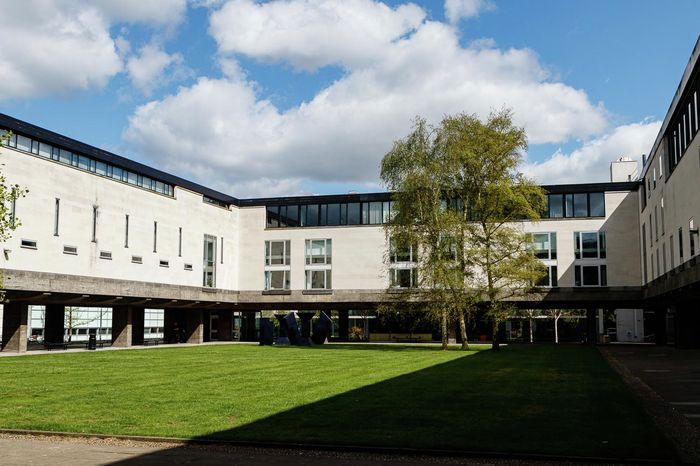Open letter demands that students select their exam format – and whether they sit them at all – due to Covid-19
The letter highlights the difficulty of ensuring fairness should a single mode of remote examination be implemented, asking instead for optionality and decentralising choice to students

An open letter calling upon the University to permit students to individually select their preferred examination mode has so far garnered over 500 signatures since it was launched last night.
This comes as the coronavirus outbreak is expected to peak during the upcoming examination period, with Cambridge and its faculties not set to reveal the details of their contingency plans until the end of the month.
The letter outlines three core options from which students would be permitted to choose.
- Going ahead with the scheduled examination period by undertaking remote forms of assessment. Students would be allowed to select one or a combination of: Open-book online exams, video-conference vivas, submitting a portfolio of essays, or submitting coursework. These options would be flexibly subject to exam allowances and mitigation procedures, which students would not need evidence to secure.
- Postponing examinations and coursework and dissertation deadlines until a later date, or allowing finalists to restart their final year in Michaelmas 2020.
- Receiving a grade based on a combination of factors such as reports, supervision work, previous grades, and previously submitted coursework. Alternatively they could choose to graduate Declared to have Deserved Honours (DDH), whereby students graduate with an unclassified degree.
The University has this afternoon advanced to its ‘red’ phase of response to the outbreak, meaning no examinations will take place in Cambridge next term. Prior communication from the University and its faculties and departments over the past few days has stated that contingency planning in advance of Easter term includes preparation for remote forms of assessment.
The open letter highlights the difficulty of ensuring remote assessment remains fair due to factors ranging from disability to “asymmetric” home environments, access to work tools, and demands placed upon students by the pandemic.
“Such disparity between students’ ability to complete assessments becomes so significant that a one-size-fits-all approach cannot be feasible.”
How assessment might best and most fairly be conducted amid the coronavirus outbreak has quickly become a point of concern among students. MMLL finalist Daniel Wittenberg wrote in The Guardian on Tuesday that given such disparity, the fairest option would be to cancel examinations entirely.
A number of open letters setting out desirable solutions are currently circulating in Cambridge: 72 Politics and International Relations (POLIS) finalists wrote to their Department to ask, among other things, for greater flexibility around assessments and a clear channel through which students can input their views into the decision-making process around how assessments should proceed. Varsity understands that similar letters to at least the History and Divinity faculties are currently being developed.
On Tuesday, the English Faculty circulated a survey among its undergraduate finalists inviting respondents to select a single preferred alternative assessment method. The open letter praises the more flexible nature of this survey in seeking the opinion of students, but criticises the possibility that the Faculty might have all its finalists undertake the same method of assessment.
“Optionality is critical given the nature of the current crisis. Imposing any one formula on the entire student body will unfairly disadvantage a significant number of its members. If we prioritise simplicity then we may unintentionally neglect the nuance of the situation which we face.”
The letter also asks that students be able to decide independently which assessment method is best suited to their situation. On Monday, POLIS advised its students to keep a record of any disturbances they face over the coming months, including evidence of the disturbances. Any pertinent information, students were told, would be treated sympathetically. The open letter argues that the only realistic way students might access the best assessment method for them and their circumstances is through privately determining this themselves, given the difficulty of obtaining evidence for any hardships they might soon face.
The letter notes that in many situations obtaining a doctor’s note or a medical diagnosis will not be possible, due to the nature of self-isolation and social distancing.
“Moreover, it is not possible to distinguish the hidden burdens of the pandemic such as fear, anxiety and racial abuse and quantify their effects on student wellbeing and performance. It is not possible to graph these difficulties on a curve and decide that some afford greater choice than others. There is no clear hierarchy of misfortune that can be reliably assessed to determine the options which each student deserves.
“Instead, students should be empowered to make that decision themselves, in constructive consultation with their Directors of Studies and Tutors, without fear of prejudicial or unequal treatment or pressure to accept a certain outcome where this is not desired.”
The letter argues that while young people who contract the coronavirus generally face less severe health risks, they are “best placed to fill any gaps in care provision, as well as other forms of labour, which may be created by illness, social distancing and self-isolation.”
“It is impossible for these roles to be taken up without great anxiety by students also preparing for examinations and coursework deadlines, nor without detriment to both objectives. We do not want to feel compelled to make the impossible choice between our health or the health of our loved ones and communities on the one hand, or our future careers on the other.”
Barring the survey circulated yesterday by the English Faculty including options adopted in the open letter, little specific information detailing what remote assessment could look like has been shared with students. Law and certain Computer Science students have been informed that their examinations, should they take place, will take place online.
Oxford students were informed on Tuesday that examinations will take place online, reflecting the approaches of universities such as LSE, King’s College London, and Edinburgh.
Cambridge students can expect to hear from the University about examination plans by 31st March.
Stay up to date with Varsity's live coverage of the coronavirus outbreak in Cambridge on our live blog.
 News / Judge Business School advisor resigns over Epstein and Andrew links18 February 2026
News / Judge Business School advisor resigns over Epstein and Andrew links18 February 2026 News / Gov grants £36m to Cambridge supercomputer17 February 2026
News / Gov grants £36m to Cambridge supercomputer17 February 2026 News / CUCA members attend Reform rally in London20 February 2026
News / CUCA members attend Reform rally in London20 February 2026 News / Union speakers condemn ‘hateful’ Katie Hopkins speech14 February 2026
News / Union speakers condemn ‘hateful’ Katie Hopkins speech14 February 2026 News / Hundreds of Cambridge academics demand vote on fate of vet course20 February 2026
News / Hundreds of Cambridge academics demand vote on fate of vet course20 February 2026











